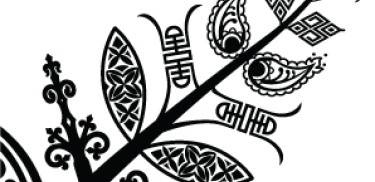Interfaith: Background
Methodist Mission and Ecumenical seeks to promote interfaith relations and an awareness of religious diversity within Aotearoa-New Zealand through: fostering good relationships between religions; and, develop ways of working together on common issues.
We are the children of many traditions - inheritors of both shared wisdom and tragic misunderstanding. In that which we share, may we see the common prayer of humanity; where we differ, let us wonder at human freedom; together let us know the uniqueness that is God.
Many of Aotearoa New Zealand’s faith communities and interfaith groups are engaged across many different areas: offering support, education, consciousness raising, advocacy, and opportunities to connect and contribute to a peaceful, inclusive and just society. Some initiatives are focussed on particular groups (e.g. newcomers and youth) while others are aimed at more general community building. Some examples include teaching English, foodbanks, organising shared meals and other community connection events, youth programmes (often sports focussed), tree planting projects, walking groups, interfaith choirs and sports programmes.Methodist Mission and Ecumenical published a book Neighbours not Strangers in 2008, written by then Secretary for MME, Rev. John Roberts. In his concluding chapter, he summarised his survey of Methodist reflections and perspectives for an on-going encounter with other religious traditions. A copy of this summary is a helpful overview that surveys Methodist scholars.
Organisations and Links
NZ Interfaith
The website was started in the 1990’s to support the sharing of news and events of interfaith groups throughout the country. It has links to many other interfaith sites and resources.
The National Interfaith Forum has been organised by various host regions, generally every two-or-so years. For more information, refer to the NZ Interfaith website.
Interfaith.org.nzReligious Diversity Statement
The Religious Diversity Centre is dedicated to fostering appreciation and understanding of religious diversity among all New Zealanders. The RDC also hosts an annual Religious Leader’s Forum. MCNZ has supported the RDC since its foundation in 2016.
Religious Diversity CentreResources
-
Religious Diversity Statement
Despite New Zealand being a secular State and a society historically influenced by mainstream Christian heritage, Aotearoa is increasingly becoming a country of many faiths. Religious diversity is a significant feature of public life and includes those who profess no religion.
The Statement was originally published and endorsed by a wide range of faith groups in 2007. A second edition followed 2009. In September 2019, the New Zealand Human Rights Commission co-partnered with Office of Ethnic Communities and the Religious Diversity Centre to launch the third edition of the Statement on Religious Diversity.
Religious Diversity Statement 2019
Human Rights Commission: Religious diversity statement (2019 reprint)
-
Growing a socially inclusive Aotearoa New Zealand
The NZ government’s Office of Ethnic Communities organised hui in 2020 that gathered people from faith communities and interfaith organisations from across Aotearoa New Zealand. The purpose was to foster collaboration between the Government, faith communities and interfaith organisations in order to continue building a socially inclusive country.
Faith and interfaith organisations expressed these priorities – enhancing collaboration; the importance of an education system that normalises faith and ethnic diversity; the importance of the media in promoting social inclusion; recognising that while Government can be an enabler, community-led actions are important; and ensuring better connections and collaboration with Government.
NZ Govt 2020 Connecting with Faith-Interfaith Communities report
-
Charter of Compassion
The Charter for Compassion is a cooperative a multi-faith effort by members of the five major religions including the three Abraham faiths: Judaism, Christianity and Islam. It seeks to restore not only compassionate thinking, but more importantly, compassionate action to the centre of religious, moral and political life. The charter seeks to bring the word compassion into public and private discourse, making it clear that any ideology that breeds hatred or contempt (be it religious or secular) is unacceptable. It seeks to build a global community where people of all races, nations and ideologies can live together in peace.
The MCNZ Conference of 2010 adopted the Charter.
Download Resource: Charter of Compassion
Charter of Compassion website
-
Interfaith Week of Prayer for World Peace
“Where people are praying for peace the cause of peace is strengthened by their very act of prayer, for they are themselves becoming immersed in the spirit of peace.” So wrote George Macleod, founder of the Iona Community. He was one of a number of faith leaders who in 1974 signed ‘A Call to Prayer for World Peace’. Started as a Christian initiative, it soon became an interfaith activity and now welcomes everyone, of all faith traditions or none. A guiding principle of the Week is found in the words “The peace of the world must be prayed for by the faiths of the world”.
The Week of Prayer for World Peace is an opportunity for people of all faiths to pray in their own gatherings or with people of other faiths for world peace. The Week is observed each year, usually starting on the 2nd Sunday in October. A leaflet has been produced with prayers, readings and affirmations from many faiths to use each day. The theme of the leaflet is developed for worldwide distribution by the Week of Prayer for World Peace multi-faith committee based in Great Britain. Religious communities throughout New Zealand are encouraged to celebrate the week both in their observances and together with people of different faiths.
Download Resource: WPWP 2021
Website: Week of Prayer for World Peace (UK)

Religious Diversity Fern

